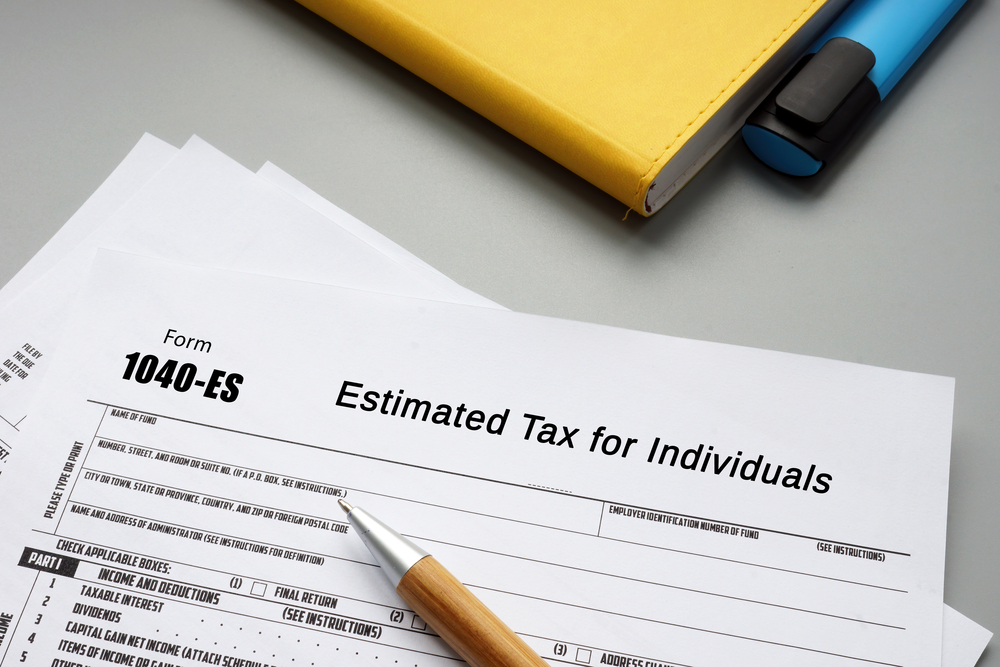How Quarterly Estimated Tax Payments Help You Avoid Burdensome Tax Debts
- Mar 15, 2023
 For workers who receive a paycheck and file a W-2, paying taxes happens automatically. The taxes you owe are withdrawn from your paycheck before you even receive the money; the only time you have to give your tax payments much thought is when you file your tax return. However, for those who have self-employment income or other income sources that are not taxed in advance, taxes need to be on your mind a bit more often. These individuals are expected to make quarterly estimated tax payments, and failure to do so can result in high tax debts that are difficult to pay off. Keep reading to learn more about quarterly estimated tax payments and how they can help you avoid unaffordable tax debt.
For workers who receive a paycheck and file a W-2, paying taxes happens automatically. The taxes you owe are withdrawn from your paycheck before you even receive the money; the only time you have to give your tax payments much thought is when you file your tax return. However, for those who have self-employment income or other income sources that are not taxed in advance, taxes need to be on your mind a bit more often. These individuals are expected to make quarterly estimated tax payments, and failure to do so can result in high tax debts that are difficult to pay off. Keep reading to learn more about quarterly estimated tax payments and how they can help you avoid unaffordable tax debt.
What Are Quarterly Estimated Tax Payments?
As the name implies, quarterly estimated tax payments are payments that you make to the IRS every quarter based on your estimated tax debt. The amount for these payments is typically calculated by looking at your income from last year and dividing it by four, giving you an estimated amount that you should be paying every quarter. However, the actual amount you should pay may differ if your income has changed significantly since last year.
Who Has to Pay Them?
As was stated earlier, not everyone has to make quarterly estimate tax payments; this requirement is generally reserved for anyone who has untaxed income that exceeds $500 per year. This can include from the following sources:
- Businesses that you own
- Businesses you’ve invested in
- Self-employment income
- Interest on investments
- Rental property income
- Dividends
- Social Security income
- Unemployment income
- Any other untaxed income source
If you’re not sure whether or not you should be making quarterly estimated tax payments, you should speak with a CPA for guidance.
Why Would You Have to Pay Them?
The United States has a pay-as-you-go tax system. This means that you’re expected to pay taxes on your income as you earn it, and not just pay it all at once. When you file your return, you’re essentially “settling up” with the IRS to ensure that you paid your taxes properly during the previous year. However, if you’re not having any taxes taken out of your income throughout the year, you’re going to find yourself with two very unpleasant surprises.
First, you’ll have a very large tax bill for what you owe. Taxes are much more manageable when a small amount is taken out of every paycheck; paying the entirety of your tax debt during tax season is usually more than most people can afford. Second, on top of the unpaid amount you owe, you can be charged underpayment penalties for not paying those taxes when you were required too (i.e., when you earned the income). This further increases your tax bill and makes it that much more difficult to pay off.
What to Do If You Didn’t Make Your Quarterly Payments
As you can gather from the section above, failing to make your quarterly estimated tax payments can lead to very heavy tax burdens. But what if it’s too late for you to make those payments now? What if you simply forgot or didn’t know about quarterly estimated tax payments last year, and now you owe more in taxes than you can reasonably afford?
Luckily, there are solutions available to you. The IRS provides numerous tax repayment plans that taxpayers can take advantage of. Though failure to pay your taxes throughout the year is a problem, being proactive and making a sincere effort to communicate with the IRS now can work in your favor and help you to establish a repayment plan that will break your debt into more manageable monthly payments, instead of a high lump sum.
If you overlooked your quarterly tax payments in the past, and you need help managing the result tax debt, contact the IRS Advocates today. We’ll help you work with the IRS to get that debt under control with a repayment plan that works for your finances. We can also provide you with guidance and support in sticking to your repayment plan and avoiding this kind of problem in the future by making your regularly schedule quarterly estimated tax payments for any untaxed income that you may receive. Call now to schedule a consultation with one of our advocates, and get on the road to a future that’s free of burdensome tax debts.
STOP THE IRS!
Settle for less & Protect your assets
Never Call the IRS without Speaking with our Pros First!